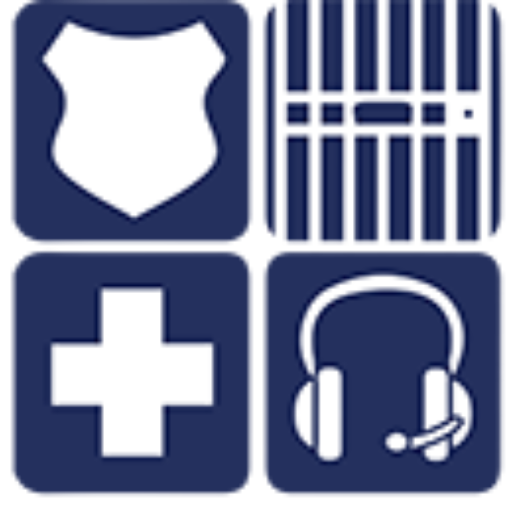About seven years ago I wrote an “FTO Manual” for newly appointed Sergeants & Acting Sergeants for my department. The entire manual was based off the principals and concepts I have been teaching for about 20 years as a Washington State FTO Academy instructor.
I wrote this article as an introduction to the manual. It outlines some concepts and principals about leadership I felt were basic, but important to a new sergeant. While writing the article I realized that any point you could substitute the word sergeant for FTO and it would all still hold true. I think if you read it from the perspective of being an FTO you’ll agree.
Leadership
The Information that follows is on leadership and supervision. It is a collection of principals and philosophies that have been gathered from various sources. It is not, nor is it intended to be, the definitive word on leadership, but rather a reference guide to give some direction and create some thoughts on your style of leadership.
You have obviously displayed leadership qualities and had opportunities to both lead and supervise other officers. The information that follows is intended to provide additional ideas for your future use. Leadership is a lifelong pursuit. It is not a destination or goal that can be achieved but rather a way of life, a principal to be studied, evaluated, implemented, and critiqued.
Leadership styles are adjusted for the person(s) and situation that are involved at that time. Finding just one style of leadership for every situation and for every person seldom works. As in the practice of student based instruction (e.g. FTO’ing a student officer), to maximize our teaching it is more important for you to find the learning style of the student and teach to that style, rather than having the student try to learn from your single style of teaching. When it comes to leadership having various “styles” of leadership at your disposal will allow you to maximize your crew’s potential by maximize the individual officer’s potential.
Positional authority is the ability to influence others actions through the rank or position you hold within the organization. There is no doubt that you can influence others merely because you are now a sergeant. There may be a time and place when positional authority is needed to accomplish a certain objective within a specific time frame. However, relying solely on your positional authority to supervise your crew will inevitably lead to distrust and low morale. You must therefore develop leadership qualities that benefit both you as a leader and your crew, while maintaining the ability to accomplish the organizational goals.
You will play many roles as a sergeant; leader, instructor, teacher, facilitator, cheerleader, coach, councilor, disciplinarian, mentor, and role model to name just a few. Most if not all of these roles can be quantified under three headings; Leadership, Management, and Supervision. Each heading brings with it its own definitions and expectation.
Leadership is defined as the ability to influence others. That influence comes from a variety of sources but at the heart of each of them is the person’s willingness to follow. You must provide the motivation for them to follow you. Positional authority alone will not have the effect on motivation for individuals to follow you very long. You must provide the reason why someone should follow you. Like the old adage says a leader without anyone following is just a person out for a walk. A persons willingness to follow you can come from many sources; the strength of your character, personal charisma, your ability to clearly explain the goal and the plan to accomplish that goal, your proven ability to empower others and help them reach personal goals while working together to accomplish the organizational goals, your reputation and credibility within the organization, and the creation of mutual respect to name a few. Leadership is a relationship; a reciprocal process between those who aspire to lead, and those who choose to follow.
Manage is defined as to administer, conduct, direct, govern, or to control. It is a process of doing, organizing and redirecting to keep efforts within the established guidelines. “Manage” or the term management is not normally associated with the growth and development of people. It has been said that you manage resources not people. However, in certain circumstance people are resources; e.g. containment on a K-9 deployment or traffic control at a major accident. Other resources that will require management will be man power within beats, overtime, patrol vehicles, cell phones, computers and other police related equipment.
Supervise, has been defined as to direct or to oversee a process or work to an established standard. Again not a word that is often associated with the growth or development of people. But a very necessary job within the work environment of police work. There are many processes and work related topics that are either high risk in their nature or subject to high liability issues. To limit liability and risk these processes must be supervised to insure a consistent high standard is always met.
Many business consultants refer to the formula for success;
Right People + Right Resources + Right Process = Success
When you combine the formula for success and the roles of a sergeant you get a formula that looks like this;
Right People + Right Resources + Right Process = Success
(Leadership) (Manage) (Supervise) (Build on)
In essence you lead people, manage resources, and supervise the process.
Lt. Mark Thomas
Marysville Police Department, WA.
Mark has bee involved with the FTO program since 1996. Mark is a certified FTO instructor for the State of Washington Criminal Justice Training Commission. Mark has been an instructor at dozens of FTO academy’s throughout the state, teaching hundreds of veteran officers the skill sets, techniques, and procedures necessary to become a successful Field Training Officer. Read More about Mark…
Tags: FTO, How to, management, Officer In Training, OI, SO, Student Officer Last modified: April 5, 2020






